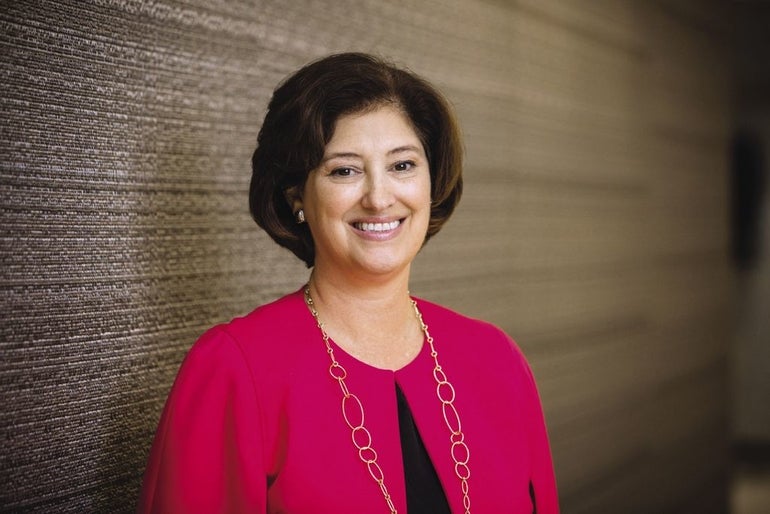Any executive looking to make a high salary in Central Massachusetts would need a mix of hard work, intelligence and opportunity. As it turns out, most of those opportunities have gone to men.
Only one of the top 10 highest-paid executives in the region last year was a woman, and only four of the top 40.
Male executives don’t just make substantially more than their female counterparts in Central Massachusetts – they nearly double them.
As a follow-up to The Boardroom Gap series from 2018, WBJ analyzed pay for 229 Central Mass. public company, higher education, healthcare, finance and social service nonprofit executives, finding men made a median of $416,082 compared to $220,461 for women.
“That’s shocking,” said Lauren Stiller Rikleen, the president of the Rikleen Institute for Strategic Leadership and a former trustee at Clark University in Worcester.
For The Boardroom Gap series last year, WBJ’s investigation found male executives made an average of $1,313,411 in total compensation vs. $572,709 for women. This year, the averages for both genders increased to $1,391,185 compared to $605,487. For this year’s follow-up study, though, WBJ switched to median pay as a way to diminish outliers like the $42 million Hologic CEO Stephen MacMillan and the $13 million TJX Cos. Executive Chairman Carol Meyrowitz made.
Rikleen said the gender pay gap typically widens further up the career ladder and as the wide Central Massachusetts gap isn’t unusual, but “it should always be shocking to see this level of differential.”
Lower-paying positions
Thanks to a male-dominated upper echelon of pay, the pay gap among men and women in Central Massachusetts leadership roles remains stark. A gap exists not just in the particularly male-dominated realms of corporate corner offices but in medicine and academia, where women are relatively more evenly represented in number.
Among healthcare executives whose pay is disclosed, men made a median of 44 percent more. At nonprofit agencies, the gap was 44 percent. At area colleges, men made 27 percent more.
For 229 executives analyzed, median pay for both genders was $321,841.
Jean Beaupre, the faculty advisor to the Institute for Women’s Leadership at Nichols College in Dudley and the author of the biennial Massachusetts Women’s Leadership Index, attributed a few causes to help explain the gap.
Women generally find themselves in executive roles in human relations or marketing, which aren’t always paid as highly as finance roles, she said. Women sometimes fair negatively in perception when they have children as home – the opposite effect for men.
Beaupre holds negotiation workshops for women at Nichols to help overcome another challenge: Women aren’t seen in the same positive, assertive light as men are when they ask for a raise.
“This starts early in women’s careers,” Beaupre said, “but in negotiations, men tend to negotiate more than women.”
Men overwhelming hold the most lucrative Central Mass. board positions.
Of the 10 public companies and nonprofits in Central Massachusetts with the worst gender ratio, compensation for board directors starts at a median of $96,000. Nearly every board where women make up the greatest share are unpaid, volunteer positions.
Narrowing the pay gap
Central Massachusetts is not alone in having a significant gender pay gap.
U.S. Census reported last year among men and women working full-time, year-round, women made a median of 81 cents for every dollar a man earned. That totaled more than $10,000 a year.
For those who see gender bias at play in the wage gap, new state legislation may begin to change that.
Last July, a new Massachusetts law went into effect banning interviewers from asking prospective employees about their pay history. In an encouragement of better pay transparency, employees cannot be penalized for discussing compensation with their colleagues.
The Mass. Office of the State Treasurer held salary negotiation training throughout last year for women at each of the state’s community colleges, aiming to help overcome wage inequality.

